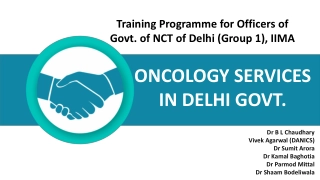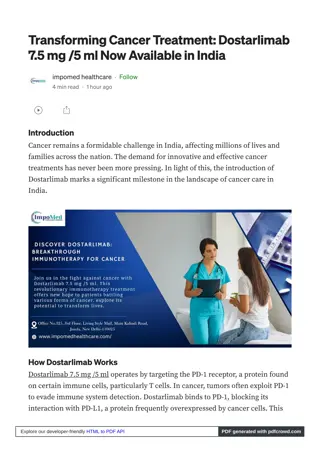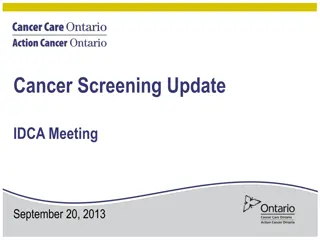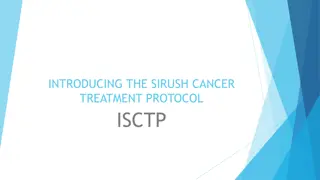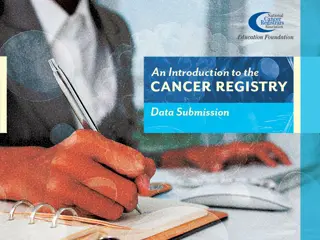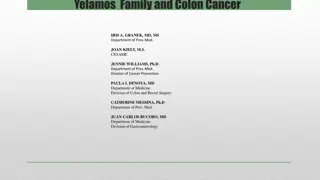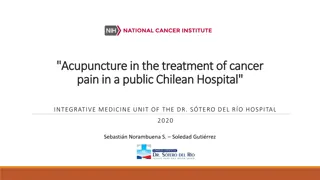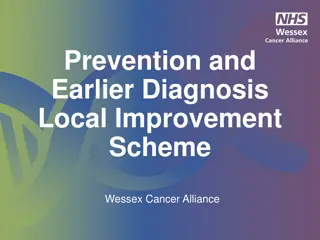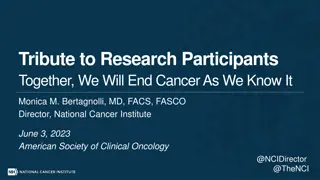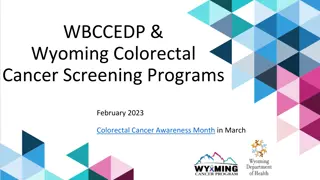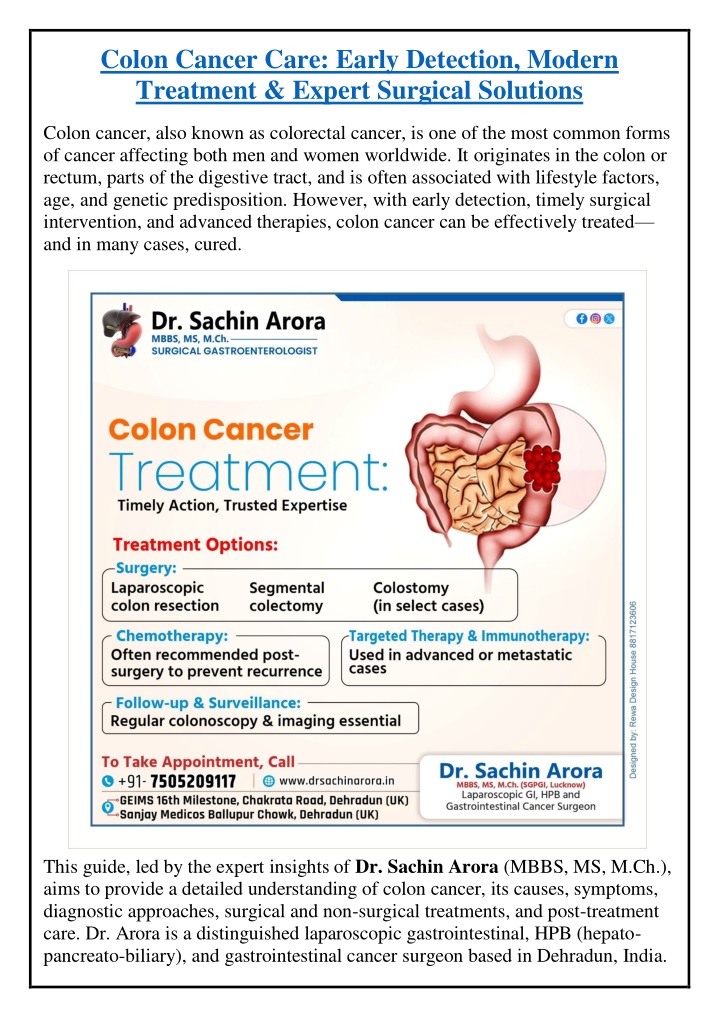
Colon Cancer Care: Early Detection, Modern Treatment & Expert Surgical Solutions
Colon cancer, also known as colorectal cancer, is one of the most common forms of cancer affecting both men and women worldwide. It originates in the colon or rectum, parts of the digestive tract, and is often associated with lifestyle factors, age,
Download Presentation

Please find below an Image/Link to download the presentation.
The content on the website is provided AS IS for your information and personal use only. It may not be sold, licensed, or shared on other websites without obtaining consent from the author. If you encounter any issues during the download, it is possible that the publisher has removed the file from their server.
You are allowed to download the files provided on this website for personal or commercial use, subject to the condition that they are used lawfully. All files are the property of their respective owners.
The content on the website is provided AS IS for your information and personal use only. It may not be sold, licensed, or shared on other websites without obtaining consent from the author.
E N D
Presentation Transcript
Colon Cancer Care: Early Detection, Modern Treatment & Expert Surgical Solutions Colon cancer, also known as colorectal cancer, is one of the most common forms of cancer affecting both men and women worldwide. It originates in the colon or rectum, parts of the digestive tract, and is often associated with lifestyle factors, age, and genetic predisposition. However, with early detection, timely surgical intervention, and advanced therapies, colon cancer can be effectively treated and in many cases, cured. This guide, led by the expert insights of Dr. Sachin Arora (MBBS, MS, M.Ch.), aims to provide a detailed understanding of colon cancer, its causes, symptoms, diagnostic approaches, surgical and non-surgical treatments, and post-treatment care. Dr. Arora is a distinguished laparoscopic gastrointestinal, HPB (hepato- pancreato-biliary), and gastrointestinal cancer surgeon based in Dehradun, India.
Section 1: Understanding Colon Cancer What is Colon Cancer? Colon cancer begins when healthy cells in the lining of the colon or rectum mutate and grow uncontrollably, forming a tumor. Over time, this tumor can invade nearby tissues and organs or spread to other parts of the body (metastasis). Most colorectal cancers start as benign polyps that, if left untreated, may become cancerous. Types of Colon Cancer: Adenocarcinoma (most common) Carcinoid tumors Gastrointestinal stromal tumors Lymphomas Squamous cell carcinoma Staging: Stage 0: Cancer is in the inner lining only. Stage I-II: Cancer has penetrated deeper into the colon wall Stage III: Cancer has spread to nearby lymph nodes. Stage IV: Cancer has metastasized to distant organs. Section 2: Causes and Risk Factors Genetic & Biological Factors Family history of colon or rectal cancer Inherited syndromes (Lynch syndrome, FAP) Inflammatory bowel diseases (Crohn s, Ulcerative Colitis) Lifestyle Factors Low-fiber, high-fat diet Obesity and sedentary lifestyle Excessive alcohol and tobacco use Lack of physical activity Age and Gender Common in people over the age of 50 Slightly more prevalent in men
Section 3: Symptoms of Colon Cancer Early colon cancer often has no symptoms. As it progresses, common signs include: Change in bowel habits (diarrhea, constipation) Blood in stool or rectal bleeding Persistent abdominal discomfort or bloating Weakness or fatigue Unexplained weight loss A feeling of incomplete bowel evacuation Section 4: Diagnosis and Screening Diagnostic Tests Colonoscopy (gold standard) CT Colonography (Virtual Colonoscopy) Flexible Sigmoidoscopy Fecal Immunochemical Test (FIT) Stool DNA test Biopsy & Imaging If a suspicious lesion is found during a colonoscopy, a biopsy is taken. CT scans, PET scans, or MRI may be performed to determine cancer s stage and spread. Section 5: Treatment Options Surgical Treatments Surgery remains the cornerstone of colon cancer treatment. Options include: Laparoscopic Colon Resection Minimally invasive procedure involving removal of the cancerous section. Segmental Colectomy Removal of the diseased colon segment and nearby lymph nodes. Colostomy In certain cases, an opening (stoma) is made for waste removal when rejoining the colon is not feasible.
Contact Information :- Address : Sanjay Medicos, Sector 2, Maharani Bagh Ln, Ballupur Chowk, Ashirwad Enclave, Mohit Nagar, Dehradun, Uttarakhand 248001 Mobile : +917505209117 Conclusion Colon cancer can be a life-altering diagnosis, but with early detection, expert care, and modern medical advancements, it is highly treatable. Empower yourself with knowledge, stay proactive about screenings, and seek timely treatment from specialized professionals like Dr. Sachin Arora to ensure the best possible outcome.


